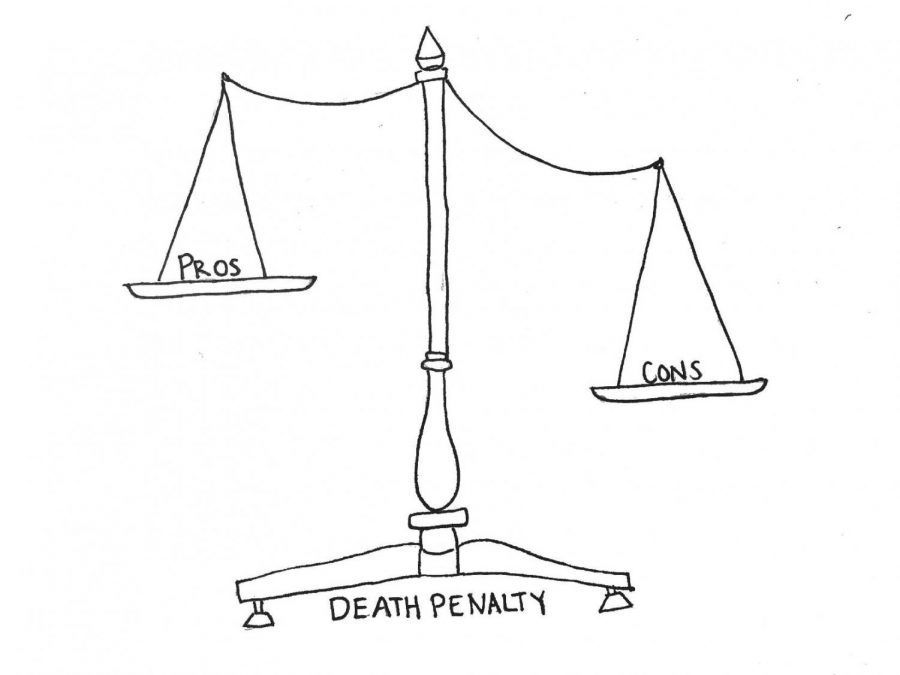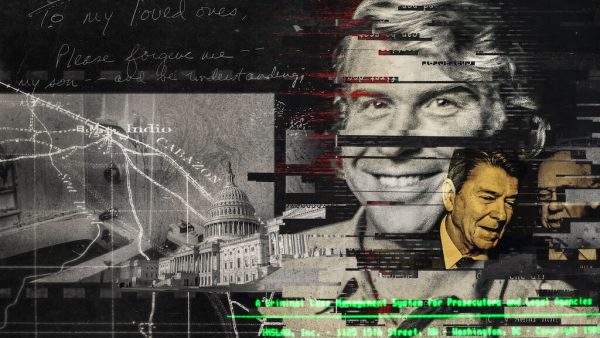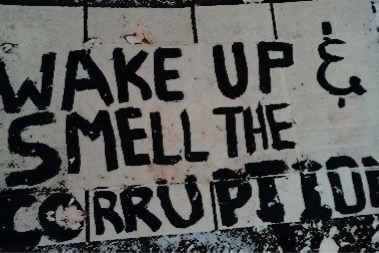It’s Time to Abolish the Death Penalty
December 19, 2022
The death penalty has been a controversial issue within politics. Like many other issues, it seems so split between right and left, Republican and Democrat, conservative and liberal. However, I believe that deciding to kill a human being is no political discussion. It is a matter of right and wrong. The government having the liberty to decide who is put to death is absurd. Additionally, it completely contradicts the Eighth Amendment that claims that no cruel or unusual punishment should be employed. Despite the ambiguous language, it is clear to me that killing anyone is cruel and unusual to say the least. Here, I will lay out several reasons why the death penalty should be abolished, as well as address counterarguments.
First, there is a significant risk in falsely accusing death row inmates of crimes. According to the Death Penalty Information Organization, at least 190 death row victims have been exonerated of their crimes, proving innocence in court. This number does not take into account those who were innocent and still put to death. This number may not seem alarming, but these 190 innocent citizens spent many years in prison, waiting for the date they would die for something they did not do. It is safe to assume that many people were in a similar situation, but did not have the resources to fight against their prosecutors. Once a person is dead, they are gone from all of their loved ones eternally, regardless of whether or not they actually committed a crime. Once someone is accused of a capital crime, it is extremely difficult to reverse the decision, especially considering that the United States appeal process is based on legal errors rather than factual errors.
Additionally, the United States capital punishment system carries many racial and class prejudices that result in disproportionate killing of minorities and the poor. According to a study by the American Civil Liberties Union, since 1976, people of color have accounted for a whopping 43% of executions, despite minorities only accounting for around 30% of the national population. Even more concerning, 55% of those currently on death row are minorities, proving that this trend is not improving over time. White victims only make up around half of all murder victims nationally, but 80% of capital punishment cases involve a white victim. This increase of 30% is flabbergasting. A 2003 study at the University of Maryland concluded that defendants are much more likely to receive capital punishment if the victim of the crime is white. There is no denying that this system is racist; the numbers do not lie. It is impossible to maintain an efficient system when racism and bigotry is so deeply rooted within the judicial system.
It may seem tempting to employ the death penalty as a deterrent to those who fear receiving capital punishment and avoid committing crimes to avoid this result but, ACLU says, “there is no credible evidence that the death penalty deters crime more effectively than long terms of imprisonment”. In fact, ACLU also claims that there is no significant difference of crime rates between states who do have the death penalty and those who do not.
On a less statistical note, the death penalty is absurdly hypocritical. How can we justify killing someone who killed another person? As a nation, it should be our responsibility to decrease murder, but we cannot say we are actively achieving this if the government is killing anyone. Two wrongs do not make a right. We do not punish those who have committed arson by committing arson, because the justice system seems to rely on the fact that two wrongs do not make a right. How can we ignore the same logic when someone is murdered?
One might argue that the death penalty is not inhuman, cruel or unusual because of modern execution methods like lethal injection. However, this is not the case. A federal judge even remarked, “a slight error in dosage or administration can leave a prisoner conscious but paralyzed while dying, a sentient witness of his or her own asphyxiation.” Since 1985, Texas has had at least three botched lethal injections, while many other states have had similar results
As a nation who seems to value preservation of life and peace, it is time to recognize that the death penalty is unjust and should be eliminated. So what can we do? Our government must take responsibility, but there are some steps we can take as citizens. Follow this link to see how you can help make a difference today.













